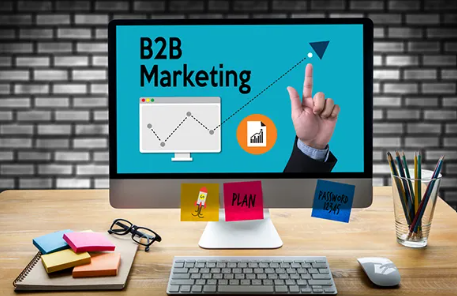B2B Marketing Challenges in 2025: Navigating a Complex Landscape
Introduction
As businesses head into 2025, the B2B marketing landscape continues to evolve at an unprecedented pace. Rapid technological advancements, shifting buyer behaviors, and economic uncertainties pose new challenges for marketers. To stay competitive, B2B companies must adapt to these changes while implementing innovative strategies to engage prospects and drive growth. This article explores the key challenges B2B marketers will face in 2025 and strategies to overcome them.
1. Evolving Buyer Expectations
B2B buyers increasingly expect seamless, personalized experiences similar to B2C interactions. Decision-makers now conduct extensive research before engaging with sales representatives, making it essential for marketers to provide relevant, high-value content across multiple touchpoints.
Solution:
- Leverage AI and data analytics to create hyper-personalized marketing campaigns.
- Implement account-based marketing (ABM) strategies for targeted engagement.
- Offer interactive content like webinars, case studies, and virtual demos to educate prospects.
2. Rising Competition and Market Saturation
With more businesses investing in digital marketing, B2B markets are becoming highly competitive. Cutting through the noise and establishing a strong brand presence is more challenging than ever.
Solution:
- Focus on differentiation by highlighting unique value propositions.
- Invest in thought leadership content, including whitepapers, reports, and expert opinions.
- Utilize SEO and content marketing to increase organic visibility and credibility.
3. Complex Sales Cycles and Decision-Making Processes
B2B sales cycles are often long and involve multiple stakeholders, making it difficult to accelerate conversions.
Solution:
- Develop nurturing campaigns using marketing automation tools.
- Provide clear, data-backed case studies and testimonials to build trust.
- Align marketing and sales teams to ensure a cohesive customer journey.
4. Data Privacy and Compliance Regulations
Stricter data privacy laws, such as GDPR, CCPA, and upcoming regulations, require B2B marketers to be more cautious with data collection and usage.
Solution:
- Implement transparent data policies and ensure compliance with global regulations.
- Use first-party data strategies to build direct relationships with prospects.
- Leverage privacy-friendly AI tools for personalized marketing.
5. Measuring ROI and Marketing Effectiveness
Proving the impact of marketing efforts remains a top challenge for B2B marketers, especially with multi-channel strategies.
Solution:
- Use advanced analytics and attribution models to track marketing performance.
- Establish clear KPIs aligned with business goals.
- Continuously optimize campaigns based on real-time data insights.
6. Emerging Technologies and AI Integration
Artificial intelligence, automation, and machine learning are reshaping B2B marketing, yet many companies struggle with adoption and integration.
Solution:
- Invest in AI-driven tools for predictive analytics and lead scoring.
- Automate repetitive tasks to improve efficiency and scalability.
- Train marketing teams on emerging technologies to maximize their potential.
Conclusion
Navigating the complexities of B2B marketing in 2025 requires agility, innovation, and data-driven decision-making. By addressing evolving buyer expectations, leveraging technology, and ensuring compliance with data regulations, B2B marketers can position themselves for success in an increasingly competitive landscape. Staying ahead of trends and continuously optimizing strategies will be key to driving sustainable growth in the coming years.


Comments are closed.